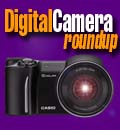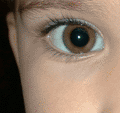 Chances are that since you're holding our Digital Camera Magazine Annual Buyer's Guide in your hands, you either already have a digital camera and are in the market for a new one, or you're about to embark on the journey into the wonderful world of digital imaging.
Chances are that since you're holding our Digital Camera Magazine Annual Buyer's Guide in your hands, you either already have a digital camera and are in the market for a new one, or you're about to embark on the journey into the wonderful world of digital imaging.
If it's the former, I think this issue will give you a good idea of what's new and what's hot. The state-of-the-art in digital photography still advances so quickly that by the time you buy a new camera, it's already almost obsolete! Not much you can do about that, but we want to make sure you always know where to look next.
If it's the latter and you're thinking about your first digital camera, let me tell you what to expect. In fact, even if you already have a digital camera, taking a step back and marveling at what this incredible new technology has given us is a worthwhile endeavor.
To me, the best thing about digital cameras is that you no longer have to send film to some lab or bring it to a store to be developed. I always absolutely hated sending away those rolls which contained potentially priceless pictures. I always hated the thought that someone out there might make a mistake and a priceless picture was lost or destroyed. And I always hated the fact that others would develop and see my pictures. My pictures are personal and I don't want for anyone else to see them before I see them. Digital photography changes all that. I can still lose an image or mess it up, but I am now in control of the process. I do not have to rely on the US Postal Service and I do not have to rely on any lab out there. That alone would make me buy a digital camera.
Second, I am impatient. I do not want to wait to see what my pictures look like. Not a week, not three days, not a day and not even an hour. I want to know immediately if a shot came out the way I wanted it to so that I can try again if it does not. Digital cameras make that possible. You can review a picture instantly on the camera's LCD. Granted, most LCDs are much too small to really see if a picture is perfect or not, but they are plenty good enough to get a general idea. And most of the better cameras let you zoom in so that you can see if the image is in focus (or if someone blinked or made a funny face). My six-year-old son is growing up without ever having known a camera where you had to wait to get the pictures. For him, the biggest thrill is to see the pictures right now. His daddy feels the same way.
Third, I absolutely love the way digital cameras work with computers. They are truly a match made in heaven. Once you get your images into the computer, there is literally nothing you can't do with them. Red eye? No problem. Almost any inexpensive imaging program can fix that. The picture is over or underexposed? That, too, can be fixed in seconds. You could argue that in this era of digital imaging, it is no longer just the camera that takes a picture. The responsibility for a good picture is shared by the camera and the computer. As long as you take a reasonably good image, you can really make it shine with just a bit of extra work in an image processing program. I love cropping my pictures just right, highlighting the parts that are important, play with filters and artistic effects, and eliminating stuff that does not belong. Playing with images can become a hobby, an art, and even an obsession!
Fourth, I love the ease with which I can store hundreds (or even thousands!) of images on my computer. There are numerous inexpensive image cataloging applications, and even standard modern operating systems do a passable job at it. Whether you go all out and create an elaborate database of your pictures-complete with dozens of data fields and search keys-or just throw them into folders titled "Halloween Party 2002," or "Joey's 3rd birthday," having your pictures on a computer is great. No more searching through boxes of old prints or photo albums where the glue slowly turns yellow. On a computer, you have almost instant access to every picture you ever took.
Fifth, digital cameras make sharing photos so much easier. Instead of sending expensive prints through the mail, I can simply email them or put them up on a web page. Again, almost every low-cost imaging program can automatically create web pages with thumbnails of your pictures. In practice, that means that minutes after you've taken a set of pictures, they could already be on the web for your friends or family to see, even if they live half a world away.
Sixth, though "digital film" is not entirely without problems, I love having storage cards that I can erase and use again instead of film. In the past, I often found myself running out of film just when I absolutely needed to take a few more shots and there was no place to buy more film. Or I found myself in a hotel where a roll cost a fortune. No such problems with "digital film." Cards that literally hold hundreds of pictures have become very inexpensive. And even in a worst-case scenario where I have just one card and it is full and I don't have a notebook handy to upload pictures, I can always go through the pics, delete some, switch to a lower resolution, and keep snapping away.
Now as we all know, there is no entirely free lunch, and that goes for digital photography as well. As terrific as it is, there are a few things you need to get used to (making paper prints can be a real drag, computers can refuse to work properly with some cameras, and you always have to keep an eye on the camera's battery) and you have to put up with some of the growing pains of a new technology (LCD displays are next to impossible to view outdoors, proprietary batteries can cost a fortune, and some cameras are hard to use), but by and large the good far, far outweighs the bad.
So if you've decided to go digital, or if you're about to upgrade to a new camera, you're in for a real treat!








